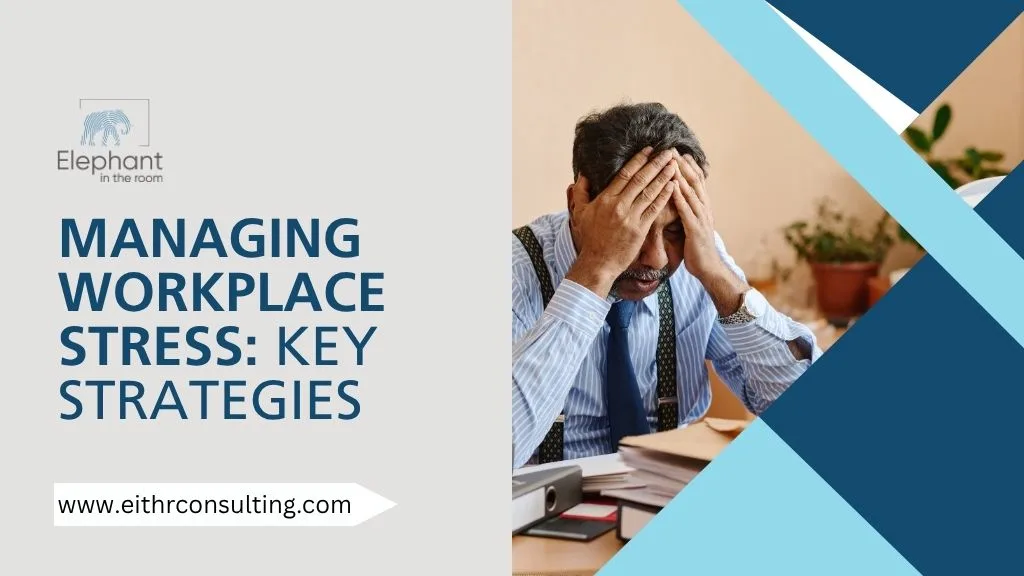Strategies for managing stress in the workplace wellbeing

Workplace stress has evolved from being a private issue to a global workforce challenge. It silently erodes morale, productivity, and engagement often long before organizations notice the signs. In fast-paced, performance-driven environments, employees are under constant pressure to meet deadlines, multitask, and deliver measurable outcomes. While some level of stress can motivate achievement, prolonged exposure leads to burnout, absenteeism, and declining mental health. KEY TAKEAWAYS According to the US Department of Labor, 83% of U.S. workers experience work-related stress, and more than half say it impacts their personal relationships. This makes stress management not just a health issue, but a business imperative. By proactively managing stress, organizations can build a culture of resilience, empathy, and sustained performance. 1. Empower Individuals with Self-Care Tools A healthy workplace begins with empowering employees to care for themselves. When individuals have the tools, resources, and permission to manage stress proactively, they can perform better and recover faster from challenges. 2. Equip Leaders to Champion Wellbeing Leadership behavior directly influences how stress manifests within an organization. When managers and supervisors model healthy habits and compassionate communication, employees feel psychologically safe and supported. Stress Management Workshops for Your Organization Help your teams identify, manage, and reduce workplace stress through our expert-led Stress Management Workshops. Equip employees and leaders with practical tools to build resilience, boost performance, and create a culture of wellbeing. Reach us at to book a free consultation. (9am to 6pm IST, Mon–Fri) 3. Optimize Workload and Processes Sometimes, stress is not just emotional, it’s systemic. Poorly designed workflows, unclear expectations, and constant firefighting create a cycle of chronic pressure. Tackling the structural causes of stress is just as important as addressing the psychological ones. 4. The 5 A’s of Stress Management The 5 A’s framework provides a simple and practical method for individuals and teams to understand and manage stress effectively: This model empowers employees to take responsibility for their mental health while reinforcing a growth-oriented mindset across the organization. 👉 OUR TAKE: Stress management isn’t about eliminating pressure it’s about creating workplaces where people can thrive under it. When leaders empower teams with tools, empathy, and clarity, stress becomes a catalyst for growth, not burnout. 5 Effective Ways to Manage Stress in the Workplace Beyond frameworks, these five actionable strategies offer day-to-day ways to manage stress effectively: 7 Steps in Managing Stress Organizations can adopt a systematic, long-term approach to stress management using these seven steps: This approach ensures stress management becomes part of the organization’s operational rhythm rather than a reactive measure. Building a Culture of Resilience Managing stress in the workplace is not about eradicating it; it’s about making it manageable, constructive, and temporary. When organizations invest in their employees’ mental health, they not only prevent burnout but also unlock higher levels of creativity, engagement, and loyalty. A resilient culture is one where individuals feel supported, leaders act with empathy, and systems are designed to sustain both people and performance. Conclusion: The Elephant in the Room Consulting Advantage At Elephant in the Room Consulting, we believe that stress management begins with awareness and ends with transformation. Our approach helps organizations go beyond surface-level wellness programs by integrating wellbeing into leadership, culture, and daily operations. We empower teams to confront “the elephant in the room,” the hidden causes of workplace stress, and replace them with strategies that foster balance, empathy, and lasting productivity. By combining evidence-based frameworks, psychological insights, and organizational design, we help businesses build environments where employees feel heard, valued, and capable of thriving even under pressure. Because a workplace that manages stress well doesn’t just perform better, it becomes better. Frequently Asked Questions

